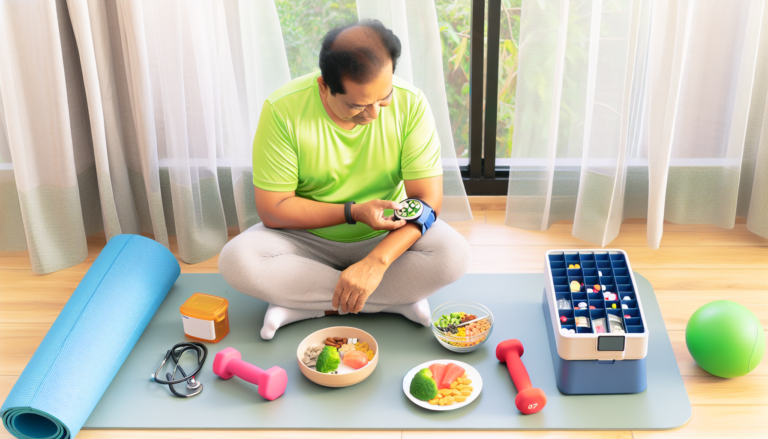Sure, based on the rules provided and considering previous articles, I’ve chosen to write a blog post highlighting the importance of a balanced diet in promoting overall health and wellbeing for home health patients. Please see the content below:
The Power of Balanced Nutrition: Enhancing Health and Well-being at Home
If you’re on a home health care journey, you’re likely aware of the importance of medication, exercise, and regular check-ups. However, one crucial aspect that often gets overlooked is nutrition. Eating a balanced, nutritious diet is integral to maintaining overall health and managing chronic conditions, and today, we’re going to explore its significance.
Food is the fuel for our bodies. It provides the nutrients needed to keep our bodies functioning optimally. Each food group plays a unique role in maintaining health, and a balanced diet containing a variety of foods ensures that our bodies receive all the essential nutrients.
Key Components of a Balanced Diet
A balanced diet includes five main food groups: proteins, carbohydrates, fats, vitamins, and minerals. Each group contributes differently to our health. Proteins help in tissue repair and immune function, carbohydrates provide energy, fats support cell growth and protect organs, and vitamins and minerals are essential for various bodily functions like bone health and immune support.
Benefits of a Balanced Diet for Home Health Patient
Poor nutrition can exacerbate chronic conditions and can lead to other health problems like obesity, heart disease, diabetes, and even depression. On the other hand, a balanced, nutritious diet can promote good health in numerous ways, such as:
- Boosting immunity: Eating food rich in vitamins A, C, and E, as well as certain minerals like zinc, can enhance the body’s defense mechanisms.
- Enhancing energy levels: Consuming foods high in complex carbohydrates and proteins can provide sustained energy throughout the day.
- Improving mental wellbeing: Certain nutrients like omega-3 fatty acids, B vitamins, and antioxidants play a vital role in maintaining and enhancing mental health.
Making the Shift
Moving towards a balanced diet doesn’t have to be overwhelming. Start with small, manageable changes. For example, replace processed snacks with fruit, switch white bread for whole grain, increase your vegetables intake, and drink plenty of water. Take it one step at a time, and remember that maintaining balance is more important than adhering strictly to any diet.
Making this shift may not only improve your physical health but also lead to better mental well-being since proper nutrition can greatly enhance your mood and cognition. Moreover, it can empower you to play an active role in your own care process, allowing you to take more control of your health journey.
However, remember that every individual’s nutritional needs are different and can vary depending on their age, sex, body size, and level of physical activity. Consulting with a registered dietitian can be beneficial in creating a personalized nutritional plan that aligns with your health goals and needs.
We hope this article inspires you to look at nutrition as a fundamental part of your home health care. Remember, the right balance in nutrition isn’t just about physical health; it’s a cornerstone of overall well-being.



